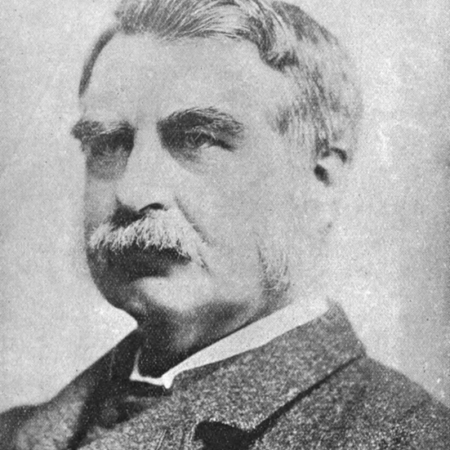After a break of a few weeks, Paul James-Griffiths of Christian Heritage Edinburgh is back with his weekly inspirational and informative articles on influential Scots in Church History and Missions.
In mission work some people are gifted at founding a ministry; others at developing that ministry. Such was the case with Revd John Anderson who pioneered a school in Madras, India, which was originally named after him, and was later renamed the Central Institute; but it was Revd William Miller who took on that small school in 1877, and turned it into one of India’s leading colleges, known as Madras Christian College.

Image: William Miller (1838-1923), G. A. Natesan & Co., Madras, Public domain, via Wikimedia Commons
William Miller was from Thurso in the Highlands and studied at both Aberdeen and Edinburgh universities. In 1862 he arrived in Madras as a missionary after his ordination in the Free Church of Scotland, where he was engaged in evangelism, teaching and medical work. Stirred by Revd Alexander Duff’s earlier vision of influencing India from the top down, he believed that by teaching a Christian worldview through colleges, leaders would emerge who would Christianise the nation, preparing the way for a large ingathering of people to Christ. In order to grow a larger education centre, he realised that the Free Church could not do this alone, so he gathered together other Presbyterians, Anglicans and Methodists, with the goal of establishing a college that would impact not only South India, but the entire nation. His vision has partially been achieved today with over 8,500 students in a campus of 365 acres. Madras Christian College has become the leading light for further education in South India and is affiliated with Madras University. It is also notable for producing leaders in India who have transformed the nation.
In 1868 Miller wrote a book called Scottish Missions in India, in which he promoted what he called Fulfillment Theology. He believed that missionaries should not push a Western model of Christianity on the people, but an Indian model should be carefully developed. It was what Sadhu Sundar Singh later described as “giving the people of India the water of life [the Christian faith] in an Indian bowl, not in a Western mug.” Miller taught that Christ was the fulfiller of Hinduism, or as the Bible says, “the Desire of all nations shall come” (Haggai 2:7). Miller used the best in Hinduism to point Hindus to Christ. It was his influence which largely inspired the Hindu Renaissance, with Christian ideals being embedded among the movers and shakers of Indian culture.
He believed, as did Duff before him, that this was a vital work of preparation for the gospel nationwide, and that people should receive Christ and not Christendom. The difficulty in all mission work is, of course, that which you retain from the culture, and that which you reject. Understandably what he was teaching was misunderstood and he became controversial, just as the apostle Paul did when he reached the Gentiles in the first century. Two of the Indian theologians he inspired were Vengal Chakkarai Chetty and his brother-in-law P. Chenchiah, who pioneered the Rethinking Christianity movement, which encouraged a native expression of the Christian faith to develop in India.
Miller was highly respected by the leaders of India, and apart from being the developer and principal of Madras Christian College for 45 years, he was asked by the Indian government to help shape their national education system, as well as being a nurturer of democracy in their culture. He was asked to join the board of Madras University (founded in 1857) to help steer its course, and became the vice-chancellor later in 1901. This university itself became the model for pioneering about 20 other universities across South India. Besides all of this other work, he found time to be on the Madras Legislative Council five times (1892, 1893, 1895, 1896 and 1901), bringing Christian values at the top level.
In 1907 he returned to Edinburgh with an illness and died and was buried there in 1923, at the age of 85. His pioneering work has had a significant impact on shaping India through Christian values.
“Go therefore and make disciples of all the nations” (Matthew 28:19, NKJV).
